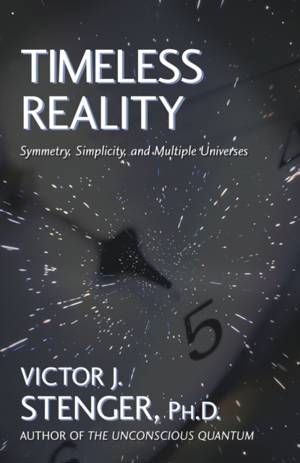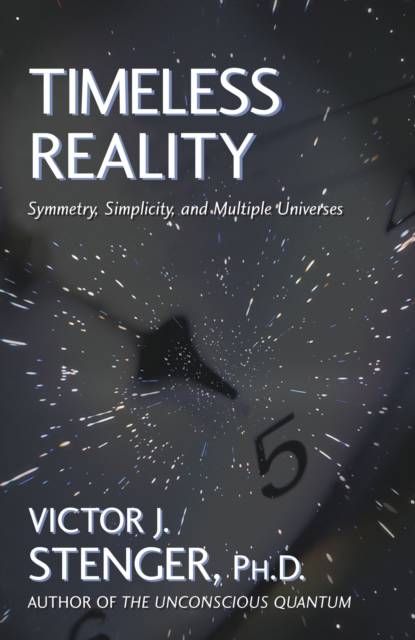
Je cadeautjes zeker op tijd in huis hebben voor de feestdagen? Kom langs in onze winkels en vind het perfecte geschenk!
- Afhalen na 1 uur in een winkel met voorraad
- Gratis thuislevering in België vanaf € 30
- Ruim aanbod met 7 miljoen producten
Je cadeautjes zeker op tijd in huis hebben voor de feestdagen? Kom langs in onze winkels en vind het perfecte geschenk!
- Afhalen na 1 uur in een winkel met voorraad
- Gratis thuislevering in België vanaf € 30
- Ruim aanbod met 7 miljoen producten
Zoeken
€ 47,95
+ 95 punten
Omschrijving
Quantum physics has many extraordinary implications. One of the most extraordinary is that events at the atomic and subatomic level seem to depend on the future as well as the past. Is time really reversible?Physicist Victor J. Stenger says yes. Contrary to our most basic assumptions about the inevitable flow of time from past to future, the underlying reality of all phenomena may have no beginning and no end, and not be governed by an "arrow of time." Though aware of the possibility, physicists have generally been reluctant to accept the reversibility of time as reality because of the implied causal paradoxes: If time travel to the past were possible, then you could go back and kill your grandfather before he met your grandmother! However, Stenger shows that this paradox does not apply for quantum phenomena.Many people believe that the laws of nature represent a deep, Platonic reality that goes beyond the material objects that are observed by eye and by advanced scientific instruments. Stenger maintains that reality may be simpler and less mysterious than most think. The quantum world only appears mysterious when forced to obey rules of everyday human experience. Stenger convincingly argues that, based on established principles of simplicity and symmetry, at its deepest level reality is literally timeless. Within this reality it is possible that many universes exist with different structures and laws from our own.Stenger elucidates these complex subjects with great clarity and many helpful illustrations in a fascinating book that is understandable to the educated lay reader.
Specificaties
Betrokkenen
- Auteur(s):
- Uitgeverij:
Inhoud
- Aantal bladzijden:
- 396
- Taal:
- Engels
Eigenschappen
- Productcode (EAN):
- 9781573928595
- Verschijningsdatum:
- 1/11/2000
- Uitvoering:
- Hardcover
- Formaat:
- Genaaid
- Afmetingen:
- 142 mm x 212 mm
- Gewicht:
- 544 g

Alleen bij Standaard Boekhandel
+ 95 punten op je klantenkaart van Standaard Boekhandel
Beoordelingen
We publiceren alleen reviews die voldoen aan de voorwaarden voor reviews. Bekijk onze voorwaarden voor reviews.









